
Though the birth of a child may be rejoiced by the relatives, it is certainly painful to the newly arriving entity. It is clear from the invariable crying of a newly born child. Everyone enters this world with a confirmed irrevocable return ticket to depart from here. It is irrevocable because it cannot be cancelled unlike other confirmed return tickets. Only the solace is that the return date is not disclosed by Parameshvara. Otherwise the person will be jeevanmrita, dead even while living! Such a departure of the individual entity jiva leaving behind the present physical body is called death. At that time the subtle body of the individual accompanied by a few other necessary factors departs and travels to the next body and enters it. Such an entry is the new birth of that jiva. The Brihadaranyakopanishad, Jyotirbrahmana, and Saareerakabrahmana1 describe in detail this transmigration. The Chhandogyopanishad2 also describes it. This is to inculcate vairagya in the mind of a mumuksu by highlighting the unavoidable pain involved in the birth and death.
While on the verge of death
Bu hikaye The Vedanta Kesari dergisinin June 2021 sayısından alınmıştır.
Start your 7-day Magzter GOLD free trial to access thousands of curated premium stories, and 9,000+ magazines and newspapers.
Already a subscriber ? Giriş Yap
Bu hikaye The Vedanta Kesari dergisinin June 2021 sayısından alınmıştır.
Start your 7-day Magzter GOLD free trial to access thousands of curated premium stories, and 9,000+ magazines and newspapers.
Already a subscriber? Giriş Yap

Panchakroshi Parikrama of Varanasi
At the snow-capped Kailas, the Divine Lord Shiva was seated with Mother Parvati.
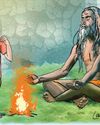
Gadai and the Monks
A fictional narrative based on incidents from the childhood of Sri Ramakrishna.

Chintayo momo maanosho Hori...
Sri Ramakrishna loved songs. There probably was no normal day when he did not sing some songs.
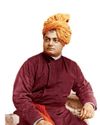
The Vedanta Vaccine
The world is still struggling under the impact of the pandemic due to Covid-19 for the last three years.
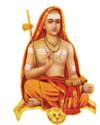
Chandrakirti's Chariot: Self in Madhyamaka Buddhism and Advaita Vedanta
The goal in Advaita Vedanta is the cessation of suffering and the attainment of true fulfillment. Suffering, according to this school, is due to ignorance of the true nature of the self and consequent erroneous identification with the body-mind.

Reminiscences of Sargachhi
Question: यद्यदाचरतत श्रेष्ठसतत्तदरेवरेतरो जनिः। ‘Whatever a superior person does, others do the same thing!’ (Gita 3:21) – What does this statement mean?
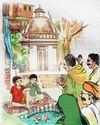
THE AUTUMN FESTIVAL
A fictional narrative based on incidents from the childhood of Sri Ramakrishna.
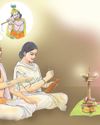
Bards of Guruvayur: Vilwamangalam II
Saints of India
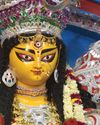
In the Universal Mother’s Divine Playground
Swami Vivekananda never taught the worship of Mother Kali. In a letter to Mary Hale he writes, “Kali worship is not a necessary step in any religion.
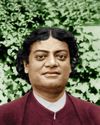
Swami Vivekananda: A Sportsman Par Excellence
In various books and articles, Swami Vivekananda has been called a spiritual leader, a prophet, a patriot, a social reformer, a philosopher, a yogi, a writer, an orator, an educationist, a musician, and so on.